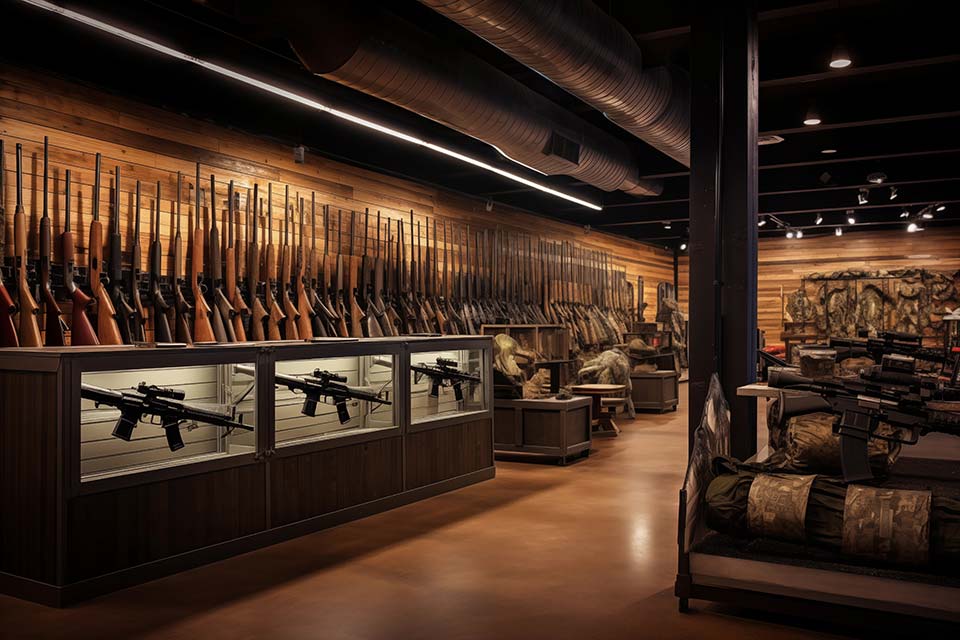The firearm industry operates under one of the most heavily regulated legal frameworks in the United States. Whether you’re a gun dealer, online retailer, or private buyer, understanding how to legally transfer firearms is not optional — it’s essential. At the heart of this process is the FFL to FFL transfer, a federally mandated system for shipping firearms between licensed dealers. These transfers not only ensure compliance with the Bureau of Alcohol, Tobacco, Firearms and Explosives (ATF) but also serve as the cornerstone of responsible firearm commerce[1].
Beyond the transfer process, firearm businesses also face challenges that extend into the world of financial transactions. Classified as high risk, firearms businesses often struggle to find payment processors willing to work with them. As a result, they rely on specialized high-risk merchant services that offer secure payment processing, fraud prevention, and chargeback protection. This article explores how FFL to FFL transfers work, why they’re required, and what payment solutions firearm merchants can use to stay compliant and successful.
Understanding FFL to FFL Transfers
An FFL to FFL transfer occurs when a firearm is shipped from one Federal Firearms License (FFL) holder to another. This process is required whenever a firearm is sold across state lines, most commonly in online sales. The buyer identifies a local FFL dealer, who then receives the firearm and conducts the final handoff after completing the necessary background checks and documentation. This system ensures all firearm transactions are traceable, legal, and fully compliant with state and federal law.
The Legal Backbone of Firearm Transfers
The legal requirement for these transfers comes from the Gun Control Act of 1968, which prohibits the direct shipment of firearms to individuals. Instead, it mandates that all interstate transactions be handled through licensed dealers. Each transfer must include the completion of ATF Form 4473 and a background check using the National Instant Criminal Background Check System (NICS). This process not only confirms the buyer’s eligibility but also creates a record that can be used in audits or investigations.
Who Needs an FFL Transfer?
FFL transfers are necessary for more than just businesses. Private citizens who purchase firearms online or from out-of-state sellers must also go through the FFL transfer process[2]. This ensures that every buyer, whether they’re a collector or first-time gun owner, goes through the same legal screening and recordkeeping. It’s a safeguard built into the system to prevent firearms from ending up in the wrong hands.

State-Specific Transfer Laws
Universal Background Check States
In states like California, Oregon, and New York, even private in-state sales must go through an FFL. These states have adopted universal background check laws that extend federal compliance to all firearm transactions.
More Lenient States
In places like Texas or Florida, private in-state transactions are permitted without FFL involvement, provided both parties are legally allowed to own firearms. However, using an FFL is still considered best practice for recordkeeping and liability protection.
Hybrid Regulations
Some states adopt a middle-ground approach, requiring FFL transfers only for certain types of firearms or under specific conditions, such as at gun shows or when multiple sales are involved. Understanding the nuances of state law is critical for compliance.

Types of FFL Licenses Involved in Transfers
Not every FFL can perform the same services. The most common license for transfers is a Type 01 Dealer license, which allows the licensee to receive, sell, and transfer firearms directly to customers. Type 02 licenses are issued to pawnbrokers, while Type 07 and 08 licenses cover manufacturers and importers. Type 03 licenses, held by collectors, do not allow the holder to engage in retail transactions and are generally limited to curios and relics.
Each license type carries different responsibilities and restrictions[3]. For firearm transfers, using the correct license type is essential. A seller cannot ship to a collector, for example, unless the transaction involves a qualifying collectible firearm. This complexity makes it important to verify the license type of both sender and receiver before initiating a transfer.
The Financial Side: Why Firearm Sales Are Considered High Risk
Selling firearms isn’t just legally complex — it’s financially complicated too. Most mainstream payment processors classify the firearm industry as high risk[4]. This is due to factors like regulatory scrutiny, reputational concerns, and increased chargeback rates. As a result, firearm businesses are often denied service from providers like PayPal, Stripe, and Square, even if their operations are fully legal.
This leaves firearm merchants in a difficult position: they need to accept payments securely and efficiently, but few traditional processors are willing to support them. That’s where high-risk merchant accounts come into play. These accounts are specifically designed to support industries with elevated legal or financial risks, offering tools and infrastructure that standard processors do not.
Why High-Risk Merchant Accounts Are Essential
High-risk merchant accounts are not just a workaround — they’re a necessity for many FFL holders. These services offer secure credit card processing, PCI compliance, and fraud prevention tools tailored to the needs of firearm sellers. More importantly, they provide stability. Merchants working with providers unfamiliar with firearm compliance often have their accounts frozen or terminated without warning. High-risk processors, by contrast, build their systems with firearm businesses in mind.
Fraud Prevention and Chargeback Management
Fraud is a serious concern for any business, but it’s especially costly in the firearm industry. A fraudulent transaction can result in the loss of both product and payment, and the potential for regulatory penalties. High-risk processors often offer advanced fraud detection features, such as machine learning algorithms, IP tracking, and transaction velocity checks. They also help businesses defend against chargebacks by collecting and submitting evidence during disputes, reducing losses and protecting cash flow.
Building a Secure, Compliant Payment Infrastructure
To legally and effectively sell firearms, businesses need more than a merchant account — they need an integrated payment system that aligns with ATF regulations and modern security protocols. This includes tokenized transactions, end-to-end encryption, and real-time payment analytics. It also includes support for documentation and ID verification, especially during the FFL transfer process.
The best high-risk processors also provide integrations with point-of-sale systems designed for FFL compliance. These systems allow businesses to scan IDs, store ATF forms securely, and automate background check logging — all while accepting credit card payments. The result is a streamlined process that aligns payment and regulatory compliance in one place.
Conclusion
The FFL to FFL transfer system is more than a legal requirement — it’s the foundation of safe and responsible firearm commerce. It ensures that every firearm transfer is traceable, verified, and compliant with both federal and state law. For buyers, it provides a measure of security. For sellers, it offers a safeguard against legal exposure. But legal compliance is only half the equation.
Firearm businesses must also navigate a complex and often hostile financial ecosystem. With traditional processors refusing to serve the industry, high-risk merchant accounts have become essential[5]. These services provide the tools, protections, and stability needed to operate within one of the most regulated sectors of the economy.
For businesses looking to navigate the intersection of compliance and commerce, Payment Nerds offers tailored payment processing solutions for firearm merchants. From secure transactions to chargeback defense and FFL-integrated systems, our services are built to help your business thrive in a high-risk environment. As regulations evolve and consumer expectations rise, working with a trusted partner like Payment Nerds can ensure that your operations remain secure, compliant, and ready for growth.
Sources
- Bureau of Alcohol, Tobacco, Firearms and Explosives. “Federal Firearms License Types.” Accessed March 2025.
- NRA Institute for Legislative Action. “Gun Laws by State.” Accessed March 2025.
- ATF eZ Check System. “FFL License Verification.” Accessed March 2025.
- PaymentCloud. “Firearm Merchant Accounts and High-Risk Processing.” Accessed March 2025.
- Bankrate. “Understanding High-Risk Merchant Accounts.” Accessed March 2025.











